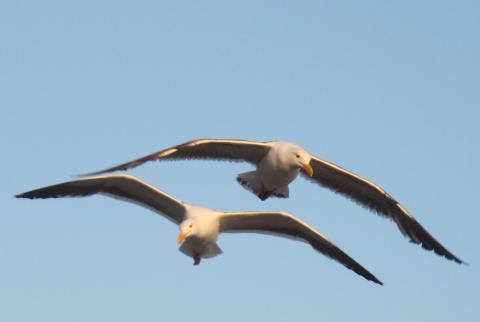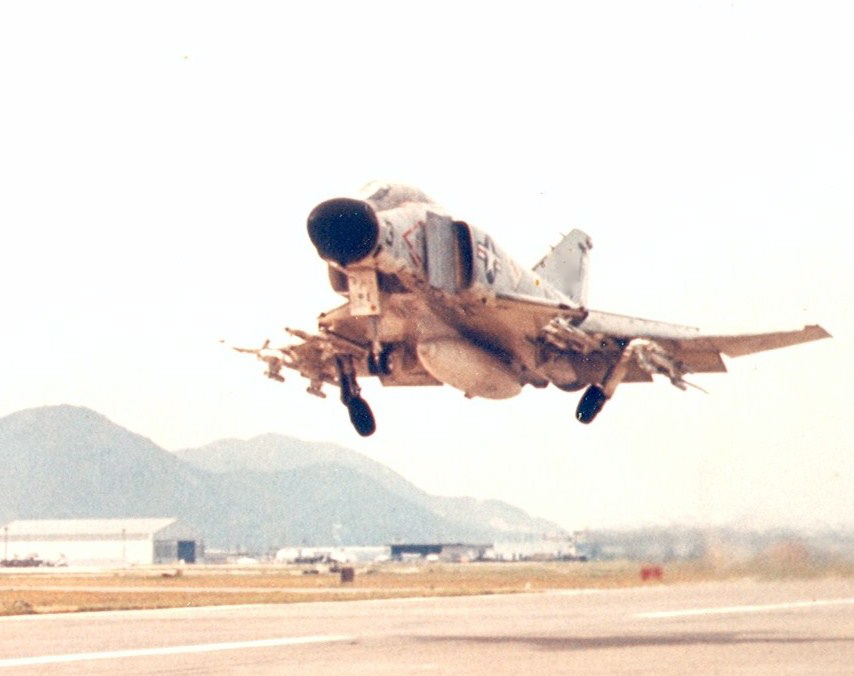Fighter Pilot Rules For Life

Fighter Pilot Rule #8: Expect the Unexpected
The unexpected that is anticipated is a contradiction but aviators know its importance.
On a day of such crappy weather -- even the seagulls stayed grounded on the grass between the runways -- Colonel Sullivan turned for takeoff from Runway 7 at MCAS El Toro. Pushing forward the throttle and kicking in the afterburner, he lifted off from the surly bonds of earth into a flock of seagulls startled by the decibels of an F-4 turbine.
Three hundred seagulls funneled into a jet engine were a problem of compressibility. Blood and feathers, guts and bones don’t pack well into the relatively small space of a Phantom’s engine.
With one turbine destroyed and unsure of the damage to the other, the colonel looked at the land near the base. If the jet stopped being able to fight gravity and he had to jump out, the hunk of steel and explosive jet fuel would twist and burn into homes, schools and/or stores. Not a good option.
Good pilots make good decisions in the worst of circumstances. He pointed his radome south and flew the crippled bird with its many mangled birds to Yuma, Arizona, where he managed to land safely.
The CO of the squadron appreciated the decision to divert, preventing a potential public relations disaster. He also appreciated the skill of the pilot in preserving a valuable piece of machinery. Engines could be replaced. A plane crashed and burned was unrecoverable.
Yuma, the day Col. Sullivan landed, had a high of 105-degrees. Yuma registered 105-degrees the next day, too. The plane, with its multiple bird strike, FODded engine, sat on the flight line in the heat for two days.
Then the maintenance officer, Snatch, flew to the desert to inspect the extent of the damage to the engine.
The guys in Yuma working on the tarmac were happy to see him. A wide area had been cleared around the colonel’s aircraft. No one wanted near the miasma of gull guts rotting in the gutted turbine blades.
Neither did the hapless maintenance officer.
Snatch got the guts. Col. Sullivan the glory.
Col. Sullivan only experienced one bird strike incident in thousands of hours of flying high performance aircraft, but he had thought about the possibility of losing an engine, talked about it, and flew the simulator many times practicing procedures if it happened. When the seagulls flew into the path of his plane, he knew how to handle it.
In our lives, we also take off everyday into the clouded sky of life, never knowing when the unexpected will hit and shred our turbine blades. Planning ahead, thinking about different scenarios with out spouses, our children, our homes, ourselves helps us deal with the emergencies. My experience has been that the emergencies are never those I expected, but I had trained myself to deal with small disasters with calm and friends and by acquiring information wherever I could.
How do you deal with the alternator going out on your car or the water heater leaking all over the garage? That may tell you whether you will be able to be calm and supportive if your daughters are in a car accident on the other side of the country and one has a traumatic brain injury; or your husband’s father dies while on vacation with you; or you face serious illness? I wish for all of you that you never have to deal with anything worse than a backed-up toilet, but it doesn’t hurt to think about the way you would deal with disasters if they come your way.



